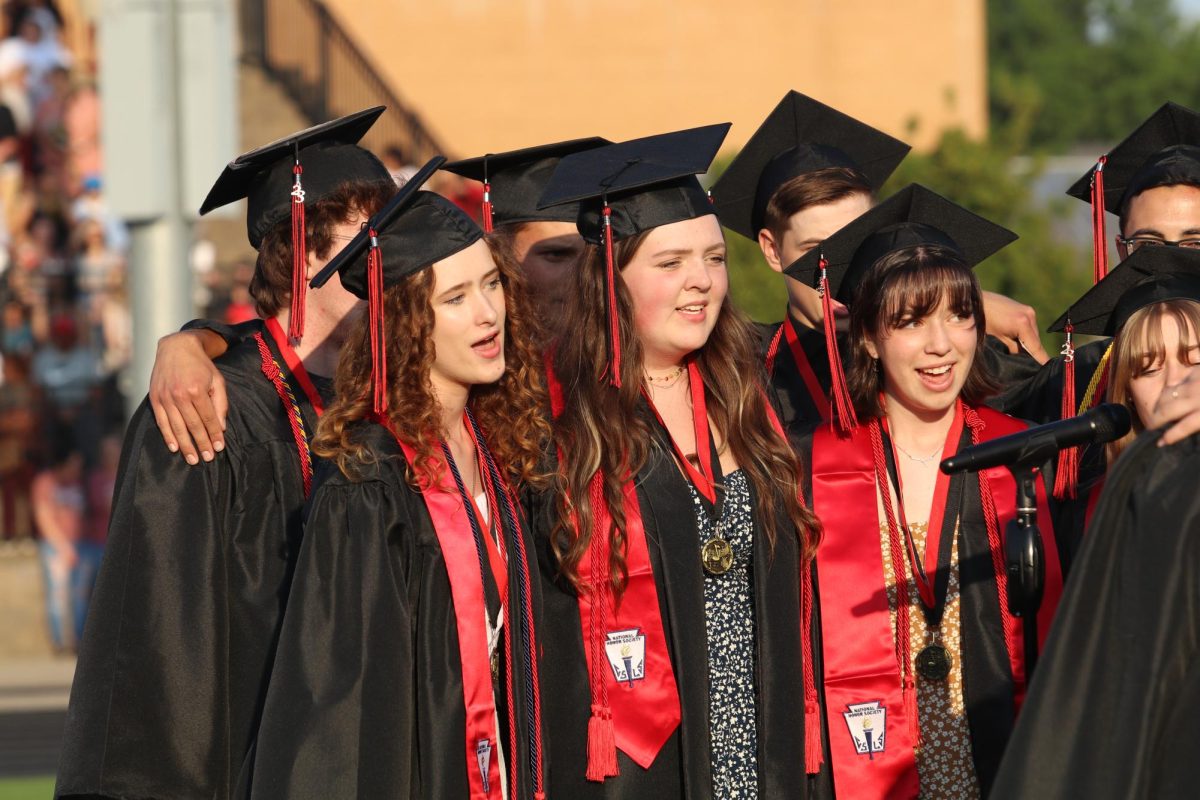After a full year of being in school without masks, the school district is continuing to take steps toward recovering from the pandemic, which means it’s time to raise graduation requirements.
Students have historically been required to have 23 credits to graduate, however when the pandemic hit mid semester of 2020, the school board decided to reduce the number of required electives from eight to six, lowering the overall number of credits required to graduate from 23 to 21. The class of 2024 came into its freshman year completely online, leaving them as the last class to have been directly impacted by COVID-19 restrictions as high school students. Because the class of 2024 graduates this year, the board has made the executive decision to raise graduation requirements again for the class of 2025.
Although this decision initially sounds like an intimidating prospect, counselor Jennifer Hare is confident that this is a step in the right direction.
“During COVID, kids had a tough time getting the credits that they needed,” Hare said. “When you think of a lot of the electives kids need beyond the core classes, a lot of those were tricky to do during COVID: ceramics, choir, art. There was just a little bit of grace so that students would still have an opportunity to graduate on time, because the pandemic wasn’t really anybody’s fault.”
The system is already structured so that students earn 28 credits if they take seven courses all four years of high school, but counselor Amy Brown said issues can arise when seniors are choosing how many and which credits to take in their last year of high school.
“I think that it’s really difficult for seniors to choose classes,” Brown said. “We have a lot of seniors that will end up taking multiple PEs because they don’t know what else to take, but on the plus side, it can also increase courses. If we have students here present taking courses and being mindful about the courses they select, then we can offer those courses.”
Selecting electives has become even more difficult in the past couple years as budget cuts have removed more opportunities to choose credits that students want to participate in.
“One of the losses that we just had was architecture and design was cut because we just didn’t have enough kids to fill a class,” Brown said. “I think that is one of the things that teachers and admin need to just communicate and make sure to be really mindful about what you’re picking [courses] because you never know.”
This decision will not have the largest impact on the student body as a whole, but junior Elle Hope-Luecke who plans to graduate early this year thinks it’s important for this to be communicated to all students, especially people struggling to pass their classes or for other juniors who plan to graduate early.
“I know a lot of people don’t find out until they go to their counselor and actually talk about it,” Hope-Luecke said. “And I think it’s good that you have to talk to your counselor, but also just maybe sending out like an email or even at one of our assemblies, talking about the graduation requirements because nobody really knows.”
Although this policy has not been widely communicated, Hare says the staff is doing everything they can to help the students who need it.
“I would say that I think the teachers and the staff and the faculty have always gone above and beyond. Sometimes I think that it’s more difficult,” Hare said.
However, there are plenty of opportunities for students who need it and students like Hope-Luecke have already used these available resources.
“I know a lot of people that have been doing like online classes on top of their schoolwork here or they’re subbing out an hour to do it online,” Hope-Luecke said. “I think having an availability of online resources, like different platforms that our school uses to help out with if you failed a class or if you want to take an extra class and you don’t have enough hours.”
Although the rise in required credits may present challenges for some, it is also a great opportunity to become more involved with the community at LHS and build a better foundation for a good future.
“I feel like you can stay in school and get experiences,” Hare said. “You don’t need to just drop out and graduate early because you think that that’s a good thing. The better idea might be to stay here to build a bridge to the next step.”





